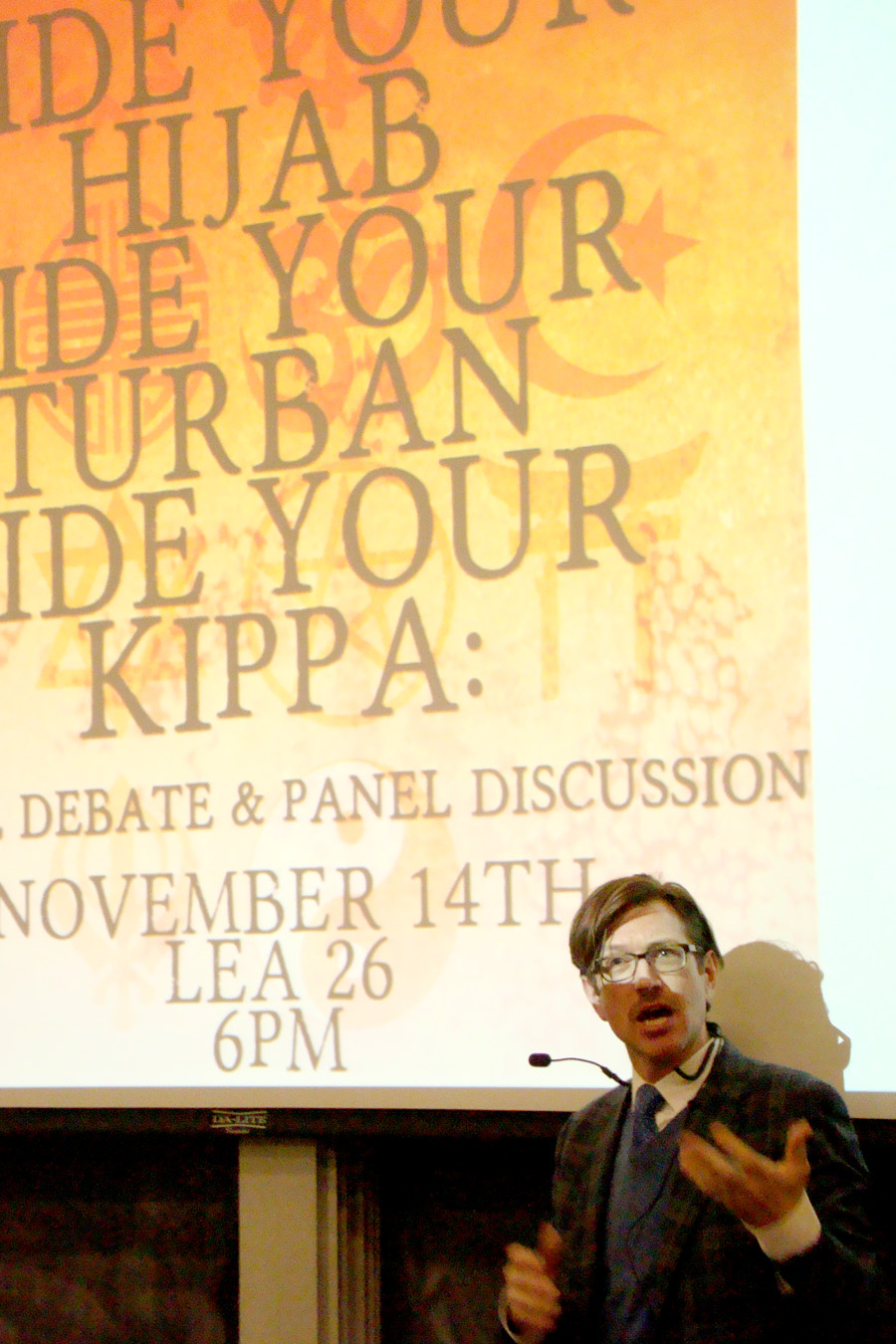Professors and students tackled issues of secularism in the public sphere in a Canadian parliamentary-style debate on Nov. 14.
The event was hosted by the McGill Interfaith Students’ Council (MISC), in collaboration with the McGill Debating Union, the Political Bouillon, and the Political Science Students’ Association (PSSA).
Law professor Robert Leckey and student Ezra Cohen, U3 Arts, argued in favour of state-enforced secularism, while political science professor Mark Brawley and student Mwanza Tshimbalanga, U3 Arts, represented opposition to this stance. Participants’ stances in the debate did not necessarily represent their personal views.
Cohen began the debate by arguing the importance of eliminating religious symbols in the public sphere.
“When the state erects a religious symbol [in] a public space, we think that it sends a very clear message: it says that to be Quebecois is to be Catholic,” Cohen said. “If it has some cultural value, lovely—put it in a museum. If it doesn’t, recycle or auction it.”
According to Brawley, however, not all religious symbols are used for the purpose of religious dissemination.
“Lady Gaga wears a cross, [but] not because she is trying to convert people to Christianity,” Brawley said. “People have the freedom to choose to wear certain things.”
Brawley went on to argue that enforcement of laws such as the Parti Québécois’ proposed Bill 60, formerly known as the Charter of Values, which seeks to prevent government employees from wearing obvious religious symbols in the workplace, would be very arbitrary, if not impossible.
“[What the government is] trying to do is to infer things about the intent of the other person,” he said. “When is a headscarf a religious symbol and when is it a scarf? You have to think about the practical impact of this resolution if it was enforced. It’s going to have the exact opposite impact of secularism.”
At the event, Sarah Malik, equity educational advisor at McGill’s Social Equity and Diversity Education Office, criticized the format for not including speakers who will personally feel the impact of the proposed charter.
“It’s really important for people who are directly affected to be given space [and for] the format of these events to give voice to people who are most affected, in particular Muslim women,” Malik said. “I take the hijab very close to my heart, but I do acknowledge that there is a difference between someone like me who […] gets a certain amount of respect because I don’t wear the hijab, versus my hijabi sisters.”
In a panel following the debate, Pearl Eliadis, human rights lawyer and lecturer in the Faculty of Law, took a feminist approach in her criticism of the charter, saying it is particularly unfair to Muslim women.
“Let’s face it—this [charter] is about hijab,” said Eliadis. “[It is] a double-whammy against Muslim women, not only with regards to the fact that they are Muslim, but also with regards to the fact that they are women. Because men wearing beards are not going to be interrogated with regards to the reason they are wearing beards.”
Manjit Singh, the director of Chaplaincy Services at McGill, compared the PQ’s support of the Charter to other examples of oppression in history.
“I keep asking myself ‘what’s the difference between Parti Québécois and the party of Lenin and Stalin?’ They amended things, and people had to endure the suppression,” Singh said. “Is [the] Parti Québécois heading the same way?”
According to Trisha Islam, U3 Arts and an organizer of the event, the debate was a starting point for future mobilization against the Charter of Values.
“There are a lot of resources out there, and we definitely don’t want this event to be the [end] of anything,” Islam said. “We want to trigger other things.”









Pingback: Professors and students debate state-mandated secularism #charter of values #qcpoli #assnat « Pearl Eliadis' Rights Blog